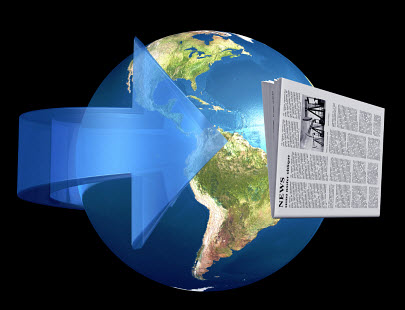Recent revelations are shocking smartphone owners who are finding that their locations are being collected.
It has now been revealed that the U.S. National Security Agency (NSA) is using geolocation technology to track the location of billions of mobile phones around the world every day, even though it looks as though a very small fraction of one percent of the data is ever actually used.
It is estimated that this tech is collecting location data for around 5 billion different devices each day.
The massive NSA database currently includes “at least hundreds of millions of devices” according to reports that have been made by The Washington Post. This data is used to allow authorities to be able to use geolocation technology to locate “cellphones anywhere in the world, retrace their movements and expose hidden relationships among the people using them.”
The use of the geolocation technology for data collection by the NSA is labeled as “incidental”.
 Incidental data collection is a legal term that describes a result that is “foreseeable but not deliberate” by the company that is obtaining the information. That said, the activities of the NSA have been heavily criticized by privacy groups. For example, the American Civil Liberties Union released a statement that said “It is staggering that a location-tracking program on this scale could be implemented without any public debate.”
Incidental data collection is a legal term that describes a result that is “foreseeable but not deliberate” by the company that is obtaining the information. That said, the activities of the NSA have been heavily criticized by privacy groups. For example, the American Civil Liberties Union released a statement that said “It is staggering that a location-tracking program on this scale could be implemented without any public debate.”
They also added to their statement that the “dragnet surveillance” that is going on to collect data regarding hundreds of millions of mobile devices “flouts our international obligation” for respecting the privacy rights of everyone from Americans to those from other countries.
These most recent discoveries have occurred at nearly the same time that Microsoft had revealed that it intends to implement greater methods of encryption. At the same time, they have been labeling the snooping from the government as being an “advanced persistent threat” when compared to cyber attacks and malware.
From among the information that is collected by the NSA through geolocation technology, they insist that only “a tiny fraction of 1 percent” is actually ever used, as the agency uses a powerful analytical program (known as Co-Traveler) in order to determine which targets to actually observe.

 In those two countries, the respondents were the least likely to want to receive advertising and promotional messages from stores and brands through the
In those two countries, the respondents were the least likely to want to receive advertising and promotional messages from stores and brands through the 